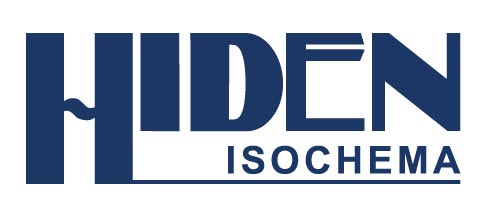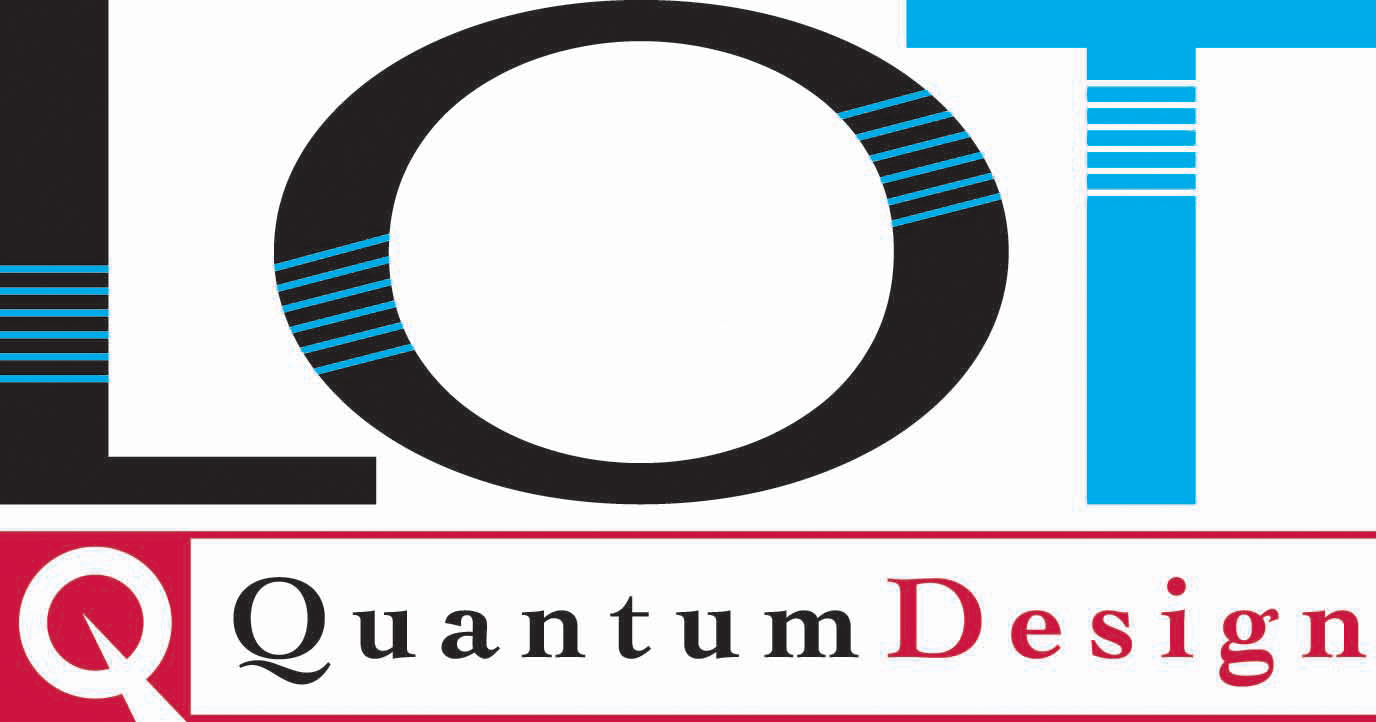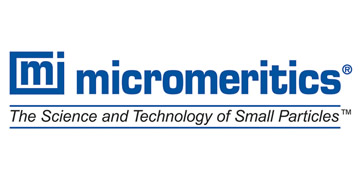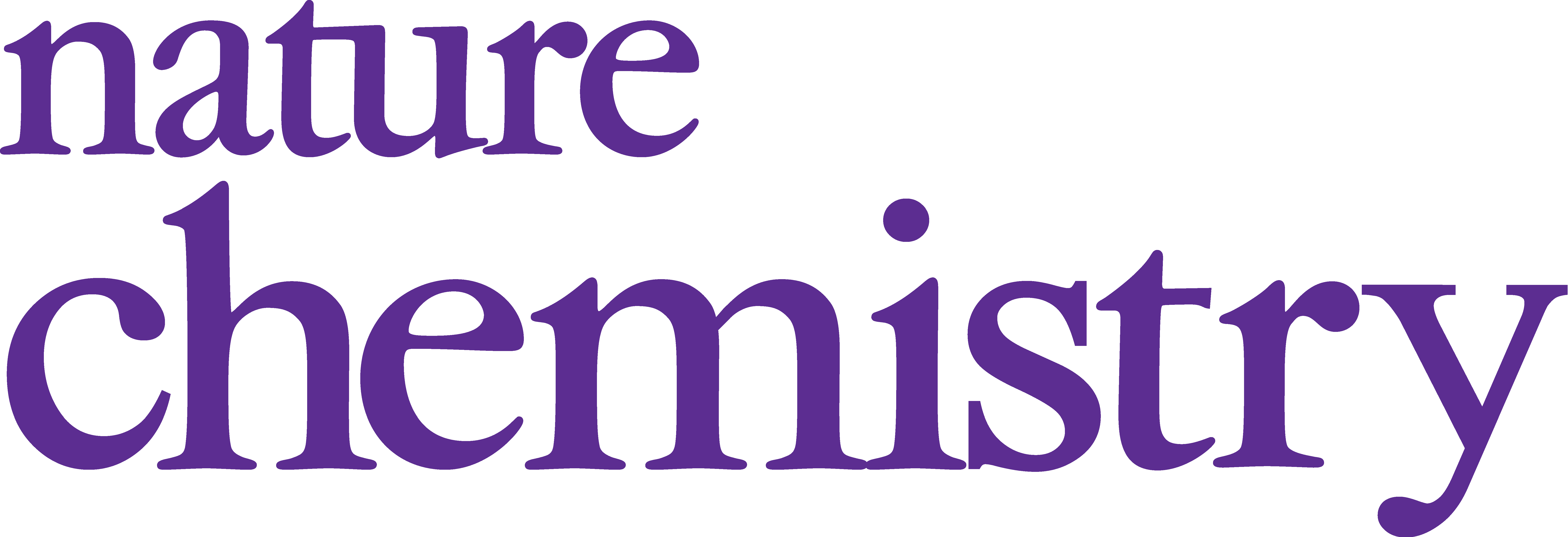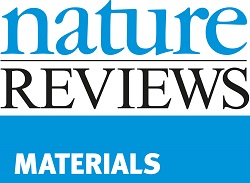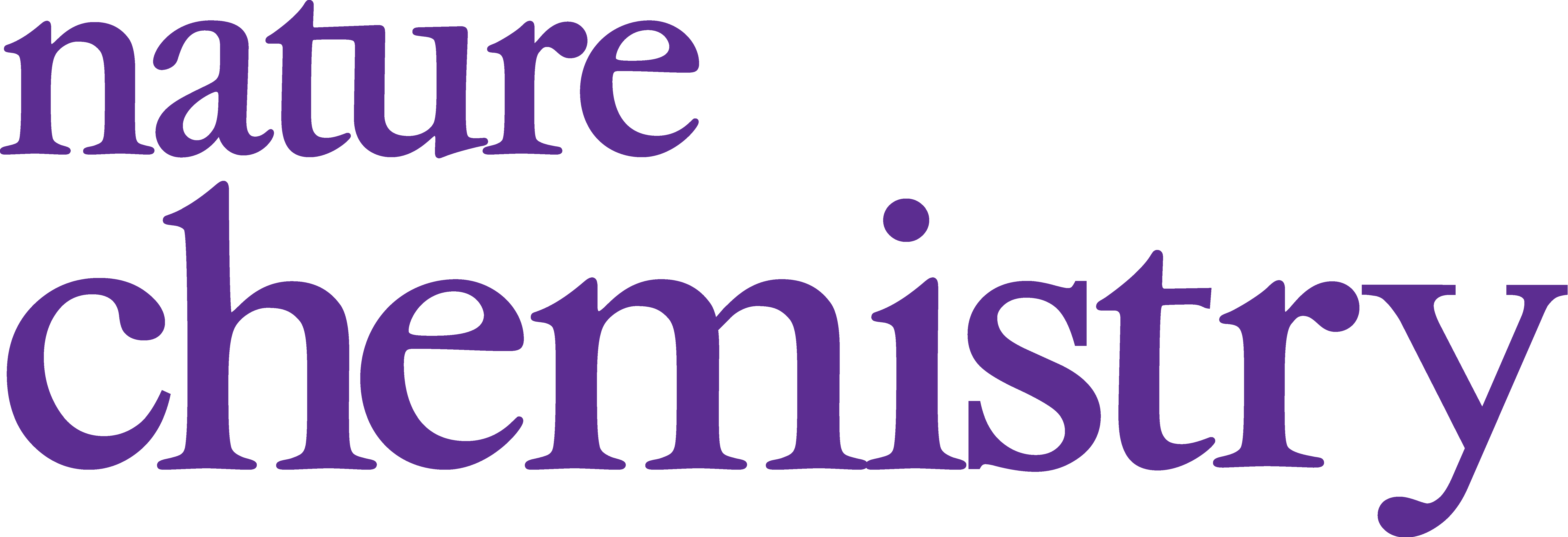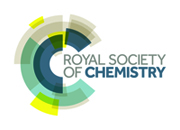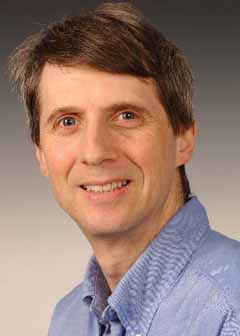 Paul Attfield, University of Edinburgh, United Kingdom
Paul Attfield, University of Edinburgh, United Kingdom
Paul Attfield holds a Chair in Materials Science at Extreme Conditions at the School of Chemistry and Centre for Science at Extreme Conditions, University of Edinburgh. He received B.A. and D.Phil. degrees from Oxford University, and he was a Co-Director of the Interdisciplinary Research Centre in Superconductivity at the University of Cambridge during 1991-2003. He received the Royal Society of Chemistry’s Meldola and Corday-Morgan medals and Peter Day award, and he was elected a Fellow of the Royal Society in 2014. Early research contributions included pioneering resonant X-ray scattering experiments of cation and valence ordering, and studies of disorder effects in functional oxides. Current research is centred on electronic and magnetic materials including use of high pressure methods.
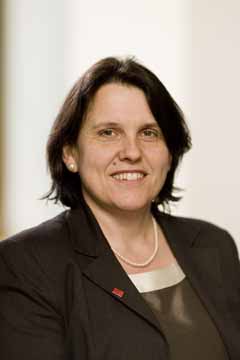 Claudia Felser, Max Planck Institute, Germany
Claudia Felser, Max Planck Institute, Germany
Prof. Claudia Felser studied chemistry and physics at the University of Cologne (Germany) and completed her doctorate in physical chemistry there in 1994. After postdoctoral fellowships at the MPI in Stuttgart and the CNRS in Nantes (France), she joined the University of Mainz and became a full professor at the University of Mainz (Germany) in 2003. She is currently director at the Max Planck Institute for Chemical Physics of Solids in Dresden (Germany). She was honored as the distinguished lecturer of the IEEE Magnetic Society and in 2011 she received an ERC Advanced grant. She won the Nakamura lecture award of the UC Santa Barbara, the 2014-Alexander M. Cruickshank Lecturer Award of the Gordon Research Conference and received the SUR-grant Award of IBM. She is a fellow of the American Physical Society and the Institute of Physics, London. In 2014 she received the Tsungmin Tu Research Prize (75 000$) by the Ministry of Science and Technology of Taiwan, the highest academic honor granted to foreign researchers in Taiwan.
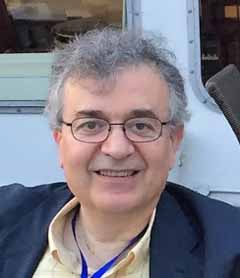 Mercouri G Kanatzidis, Northwestern University, United States
Mercouri G Kanatzidis, Northwestern University, United States
Mercouri Kanatzidis is a Professor of Chemistry and of Materials Science and Engineering at Northwestern University in Evanston Illinois. He also has a joint appointment at Argonne National Laboratory. His interests include the design and synthesis of new materials with emphasis on systems with highly unusual structural/physical characteristics or those capable of energy conversion, energy detection, environmental remediation, and catalysis. After obtaining a BSc from Aristotle University in Greece, he received his PhD in chemistry from the University of Iowa, and was a post-doctoral research fellow at the University of Michigan and Northwestern University. He holds a Charles E. and Emma H. Morrison Professor Chair at Northwestern University
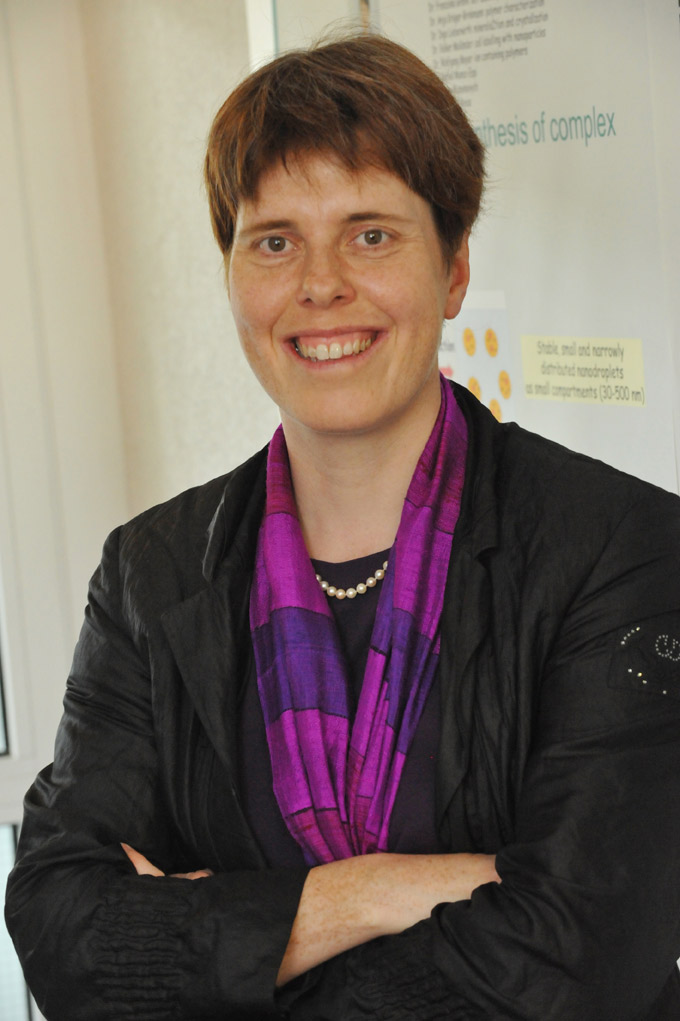 Katharina Landfester, Max Planck Institue, Germany
Katharina Landfester, Max Planck Institue, Germany
Katharina Landfester joined the Max Planck Society in 2008 as one of the directors of the Max Planck Institute for Polymer Research.
She studied Chemistry at the Technical University of Darmstadt and in Strasbourg. In 1995, she received her doctoral degree in Physical Chemistry after working with Prof. H.W. Spiess at the Max Planck Institute for Polymer Research. In 1996, she moved for a doctoral stay at the Lehigh University. She returned to Germany in 1998, working at the Max Planck Institute of Colloids and Interfaces in Golm. There, she led the miniemulsion group. In 2003, she accepted a chair (C4) of Macromolecular Chemistry at the University of Ulm.
In 1992 and 1994, and 1996 she obtained stipends for her research activities in Strasbourg and in the US. In 1998, she received the Liebig stipend of the Chemical Industry Fund (FCI). In 2001 she was awarded the Reimund Stadler prize of the German Chemical Society (GDCh) and the prize of the Dr. Hermann Schnell Foundation, followed by the Bruno Werdelmann Lecturer in 2012 and the BAYER Lecturer in 2014.
Since 2011, she is Member of the National Academy of Science and Engineering (ACATECH).
She has published 500 peer-reviewed papers and holds 30 patents.
-
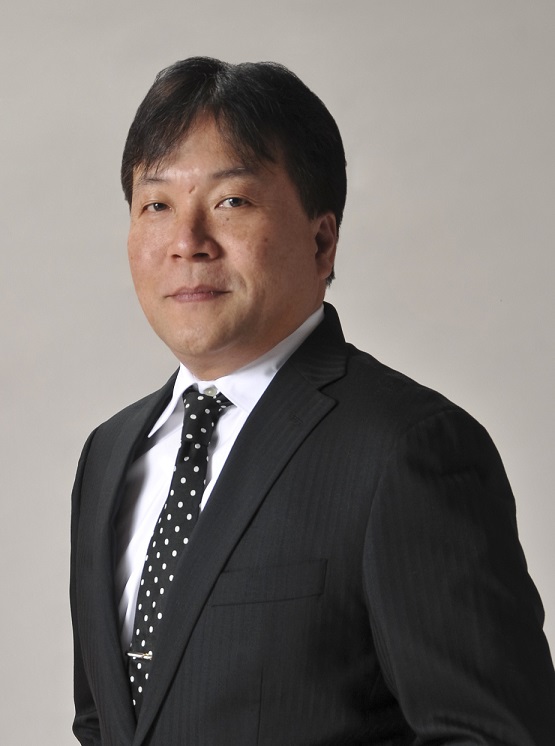
Takuzo Aida
The University of Tokyo, Japan
-

Avelino Corma
Universitat Politècnica de València, Spain
-

Jenny Nelson
Imperial College London, United Kingdom
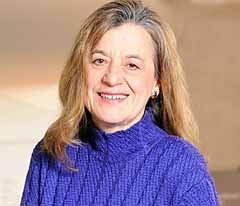 Anna Balazs, University of Pittsburg, United States
Anna Balazs, University of Pittsburg, United States
Anna C. Balazs is the Distinguished Professor of Chemical Engineering and the Robert von der Luft Professor at the University of Pittsburgh. She received her B.A. in physics from Bryn Mawr College and her Ph.D. in materials science from the Massachusetts Institute of Technology. After postdoctoral work in the Polymer Science Department at the University of Massachusetts, Amherst, she joined the faculty at the University of Pittsburgh. Her research involves developing theoretical and computational models to capture the behavior of polymeric materials, nanocomposites and multi-component fluids. Balazs is a Fellow of the American Physical Society, the Royal Society of Chemistry, and the Materials Research Society. She was a Visiting Fellow at Corpus Christi College, Oxford University in 2000-2001 and 2007-2008. She has served on a number of editorial boards, including: Macromolecules, Langmuir, Accounts of Chemical Research, and Soft Matter. She was Chair of the American Physical Society Division of Polymer Physics in 1999-2000. She received a Special Creativity Award from the National Science Foundation. In 2003, she received the Maurice Huggins Memorial Award of the Gordon Research Conference for outstanding contributions to Polymer Science. Recently, she received the American Physical Society Polymer Physics Prize (2016), Royal Society of Chemistry S F Boys-A Rahman Award (2015), American Chemical Society Langmuir Lecture Award (2014) and the Mines Medal from the South Dakota School of Mines (2013).
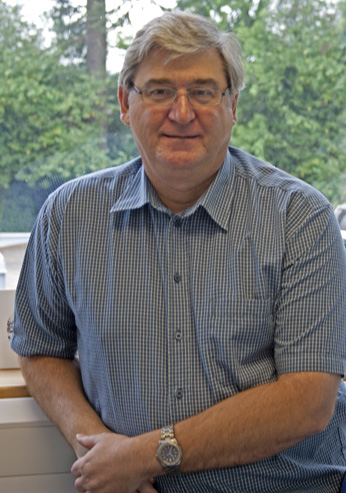 Peter Bishop, Johnson Matthey, United Kingdom
Peter Bishop, Johnson Matthey, United Kingdom
Peter joined Johnson Matthey in 1988 and currently holds the position of Technology Manager responsible for the catalysis and materials department at the JMTC. His group is engaged in a range of energy storage (batteries), catalytic, nano-material and glass/ceramic based research programs where the emphasis is on materials synthesis and related chemical/physical properties. Peter has been instrumental in bringing externally funded initiatives/projects to supplement JM strategy and has built up key contacts throughout Europe and the UK. Previous to Johnson Matthey Peter worked at the Agricultural Research Centre, Unit of Nitrogen Fixation at Sussex university studying metal-sulfur model complexes for nitrogen activation to ammonia. He obtained his BSc at Sussex and PhD at Essex University.
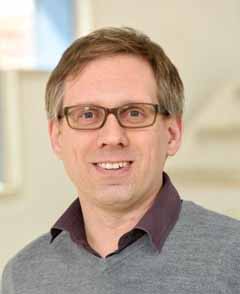 Graeme Day, University of Southampton, United Kingdom
Graeme Day, University of Southampton, United Kingdom
Graeme Day studied at Saint Mary's University, Canada (BSc, 1996), the University of Oxford (MSc, 1997) and University College London (PhD 2003). He held a post-doctoral position, followed by a Royal Society University Research Fellowship at the University of Cambridge (2005-2012). In 2012 he moved to the University of Southampton as a Reader and was promoted to Professor of Chemical Modelling in 2014. Graeme's research interests centre on the development and application of computational methods for understanding and predicting the structures and properties of molecular materials. An area of particular interest is crystal structure prediction, and its applications in structure determination, polymorph discovery and the design of materials with targeted properties. These research areas all stem from a fundamental interest in understanding and modelling intermolecular interactions
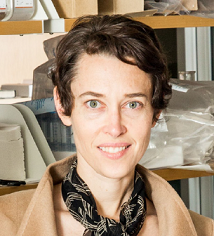 Jennifer Elisseeff, John Hopkins University, United States
Jennifer Elisseeff, John Hopkins University, United States
Dr. Elisseeff is a Professor and Director of the Translational Tissue Engineering Center at Johns Hopkins Department of Biomedical Engineering and the Wilmer Eye Institute with appointments in Chemical and Biological Engineering, Materials Science and Orthopedic Surgery. She was elected a Fellow of the American Institute of Medical and Biological Engineering, the National Academy of Inventors, and a Young Global Leader by World Economic Forum.
Jennifer received a bachelor’s degree in chemistry from Carnegie Mellon University and a PhD in medical engineering from the Harvard–MIT Division of Health Sciences and Technology. Later she was a Fellow at the National Institute of General Medical Sciences, Pharmacology Research Associate Program, where she worked in the National Institute of Dental and Craniofacial Research. She has published over 200 papers, book chapters, and patent applications and received a number of awards including the Carnegie Young Alumni Award and in 2002 she was named by MIT Technology Review as a top innovator under 35.
Jennifer’s research focus is the development of biomaterials for regenerative medicine applications in orthopedics, plastic and reconstructive surgery, and ophthalmology. She is also now investigating the role of Biomaterials-directed Regenerative Immunology and the role of the adaptive immune system in tissue repair. She is committed to the translation of regenerative biomaterials and has founded several companies (Cartilix and Aegeria) and has participated in a number of industry advisory boards (Kythera Biopharmaceuticals, Bausch and Lomb, Histogenics and Cellular Bioengineering).
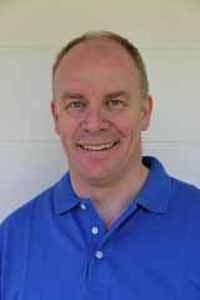 Anders Hagfeldt, Ecole Polytechnique Fédérale de Lausanne, Switzerland
Anders Hagfeldt, Ecole Polytechnique Fédérale de Lausanne, Switzerland
Anders Hagfeldt is Professor in Physical Chemistry at EPFL, Switzerland. He obtained his Ph.D. at Uppsala University in 1993 and was a post-doc with Prof. Michael Grätzel (1993-1994) at EPFL, Switzerland. His research focuses on the fields of dye-sensitized solar cells, perovskite solar cells and solar fuels. From web of science July 2016, he has published more than 380 scientific papers that have received over 35,000 citations (with an h-index of 93), and has 9 patent applications. He was ranked number 46 on a list of the top 100 material scientists of the past decade by Times Higher Education. In 2014 and 2015 he was on the list of Thomson Reuter’s Highly Cited Researchers, i.e. among the top 1% most cited in chemistry. He is a member of the Royal Swedish Academy of Sciences, Stockholm, Royal Society of Sciences in Uppsala, and the Royal Swedish Academy of Engineering Sciences in Stockholm. He is a visiting professor at Uppsala University, Sweden and Nanyang Technological University, Singapore
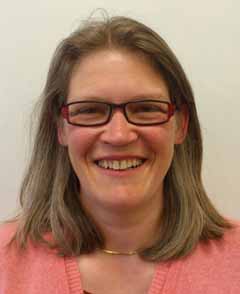 Michaele Hardie, University of Leeds, United Kingdom
Michaele Hardie, University of Leeds, United Kingdom
Michaele Hardie studied chemistry at the University of Melbourne (PhD 1996). After post-doctoral positions including in chemical crystallography at the University of Toledo and supramolecular chemistry at Monash University she joined the University of Leeds in 2001, where she is currently Professor of Supramolecular Chemistry. Her research interest are in metallo-supramolecular chemistry, including metallo-cages, coordination polymers and MOFs most particularly those with molecular hosts as ligands. She won the RSC Corday-Morgan Prize in 2011
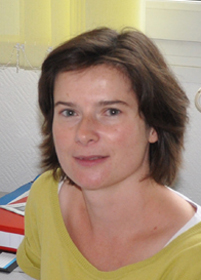 Sylvie Hébert, CNRS, France
Sylvie Hébert, CNRS, France
Sylvie Hébert has been working on the pinning of vortices in superconductors during her PhD, defended in 1998 in CRISMAT laboratory in Caen, and during her two post-doctoral positions (at Imperial College, London, with Prof. David Caplin, and in KULeuven, Belgium, with Prof. V. V. Moshchalkov). In 2000, after obtaining her CNRS position in CRISMAT, she has started working on the electronic properties of transition metal oxides, with a special focus on their thermoelectric properties, i. e. the Seebeck coefficient and thermal conductivity. Since then, she has investigated several families of transition metal oxides to better understand the relationship between the Seebeck coefficient, the crystallographic structure and the possible impact of electronic correlations and magnetism. Beyond oxides, she is also interested in sulfides and selenides. Together with Bertrand Lenoir (IJL Nancy), she has been the director of the French CNRS network on Thermoelectricity ‘GDR Thermoélectricité’ from 2011 to 2014, and has also coordinated a Marie Curie Initial Training Network ‘SOPRANO’ from 2008 to 2012, gathering 7 european laboratories, on the search for advanced new oxides.
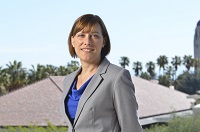 Sarah Heilshorn, Stanford University, United States
Sarah Heilshorn, Stanford University, United States
Sarah Heilshorn is Associate Professor and the Lee Otterson Faculty Scholar in the Materials Science & Engineering Department at Stanford University. She holds courtesy faculty appointments in the Departments of Chemical Engineering and Bioengineering and is a Bass University Fellow in Undergraduate Education. Her laboratory integrates concepts from materials engineering and protein science to design new, bioinspired materials. These materials are being explored for applications in tissue engineering and regenerative medicine. She completed her PhD in Chemical Engineering at Caltech and was a postdoctoral scholar in Molecular and Cell Biology at the University of California, Berkeley. Prof. Heilshorn is a fervent supporter of diversifying the engineering community and serves in multiple leadership roles to help achieve this goal. She is a Fellow of the American Institute for Medical and Biological Engineering and serves as an Associate Editor for Science Advances.
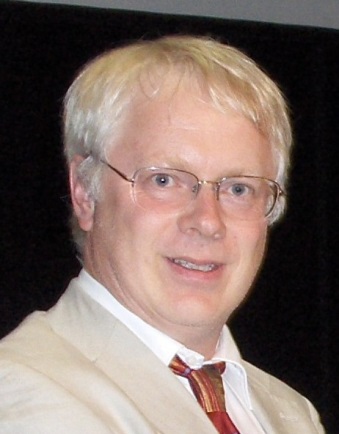 John Irvine, University of St Andrews, United Kingdom
John Irvine, University of St Andrews, United Kingdom
Professor John Irvine is Professor of Chemistry at the University of St Andrews, currently holds a Royal Society Wolfson Merit Award, is a visiting professor at Queens University, Belfast; Co Director of the Energy Technology Partnership, 1000 Talents Professor at Fujian Institute for Research in the Structure of Matter and is European Councillor for the International Society of Solid State Ionics. His first degree is in Chemical Physics from Edinburgh University and he obtained a DPhil from the University of Ulster in Photoelectrochemistry. He performed his postdoctoral studies working with Anthony West in Aberdeen and was subsequently appointed to a BP/RSC fellowship, lectureship and senior lectureship at Aberdeen University. In 1994 he was visiting Professor at Northwestern University and then moved to the University of St Andrews as Reader and then Professor of Inorganic Chemistry in 1999.
In 2005 he was elected a Fellow of the Royal Society of Edinburgh. In 2008 he received the Royal Society of Chemistry Materials Chemistry Award and the Sustainable Energy Award in 2015 and European Solid Oxide Fuel Cell Forum Schönbein Gold Medal, in 2016. He has over 400 publications in refereed journals including Nature and Nature Materials. He has developed new concepts in fuel cells such as the Hybrid Direct Carbon Fuel Cell, has a leading role in the field of developing redox stable, coking tolerant oxide electrodes for SOFCs and discovered the first significant interstitial oxide ion conductor. He was Chairman of the 2010 European SOFC Forum in Lucerne and Chair of the Scientific Committee for the Faraday Discussion, York 2015.
His research interests include solid state ionics, new materials, ceramic processing, electrochemistry, fuel cell technology, hydrogen, photoelectrochemistry, electrochemical conversion and heterogeneous catalysis.
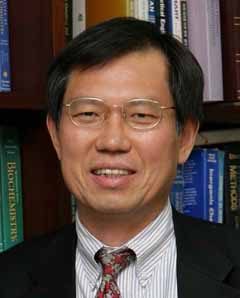 Kimoon Kim, IBS Postech, South Korea
Kimoon Kim, IBS Postech, South Korea
Kimoon Kim studied chemistry at Seoul National University (B.S., 1976), Korea Advanced Institute of Science and Technology (M.S., 1978), and Stanford University (Ph.D., 1986). After two-years of postdoctoral work at Northwestern University, he joined Pohang University of Science and Technology (POSTECH) where he is now Distinguished University Professor (POSTECH Fellow). Recently, he has been appointed as director of the Center for Self-assembly and Complexity (CSC), Institute for Basic Science (IBS). His current research focuses on developing novel functional materials and systems based on supramolecular chemistry
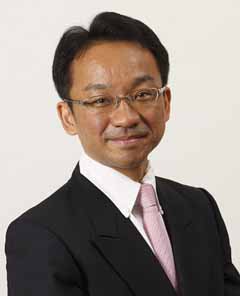 Shinichi Komaba, Tokyo University of Science, Japan
Shinichi Komaba, Tokyo University of Science, Japan
Shinichi Komaba is a professor of applied chemistry at Tokyo University of Science and a project professor at Kyoto University. After he received his Ph.D. from Waseda University, he joined Iwate University in 1998. From 2003 to 2004, he also worked at Institut de Chimie de la Matière Condensée de Bordeaux, France, as a post-doctoral research fellow. In 2005, he moved to Tokyo University of Science as a faculty member and focused on lithium-ion as well as sodium-ion batteries. Professor Komaba received the 2014 Resonate Award for his research in energy storage, which is aimed at making batteries safer, more efficient and affordable, from the Resnick Sustainability Institute at Caltech. He has developed electrode, electrolyte, additive, and binder materials for high performance sodium-ion batteries and lithium-ion battery systems. He has produced more than 170 original papers. Because of his pioneering achievement of next generation batteries, he is also honored with JSPS (The Japan Society for the Promotion of Science) Prize and German Innovation Award in 2015.
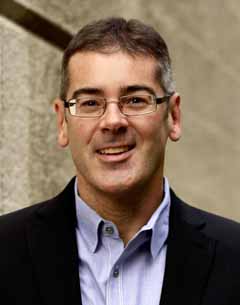 Jeff Long, University of California, Berkeley, United States
Jeff Long, University of California, Berkeley, United States
Jeffrey R. Long is a Professor of Chemistry and Chemical & Biomolecular Engineering at the University of California, Berkeley and a Senior Faculty Scientist in the Materials Sciences Division at Lawrence Berkeley National Laboratory. He served as Chair of the Division of Inorganic Chemistry of the American Chemical Society in 2012 and as a founding Associate Editor of the journal Chemical Science, and he is presently Director of the Center for Gas Separations. In 2014, he co-founded Mosaic Materials, Inc., a company devoted to the development of metal-organic frameworks for low-energy gas separations. His 240 publications have received more than 37,000 citations, and his recent awards include a UC Berkeley Graduate Assembly Faculty Mentor Award and the 2014 Inorganic Chemistry Lectureship Award.
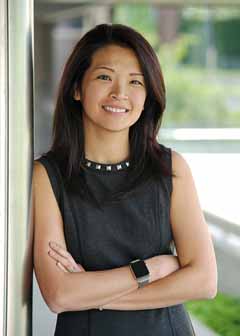 Lynn Loo, Princeton University, United States
Lynn Loo, Princeton University, United States
Yueh-Lin (Lynn) Loo is the Theodora D. ’78 & William H. Walton III ’74 Professor in Engineering and Director of the Andlinger Center for Energy and the Environment at Princeton University. Lynn received her BSE in Chemical Engineering and in Materials Science and Engineering from the University of Pennsylvania in 1996 and her PhD from Princeton University in 2001. She spent a year at Bell Laboratories, Lucent Technologies before joining the faculty in the Chemical Engineering Department at the University of Texas at Austin. She returned to Princeton University in 2007. Lynn is interested in the processing and development of materials for low-cost, lightweight and flexible solar cells and circuits, the combination of which is being explored for a range of applications, including the creation of “smart” windows to increase building and energy efficiencies, and power sources for electrolyzers to convert sunlight to fuels. The author of over 140 publications, Lynn has delivered more than 200 invited and plenary lectures globally and she serves on numerous international advisory boards of peer academic institutions, non-governmental organizations, journal publishers and private companies. She is a fellow of the American Physical Society and a Young Global Leader of the World Economic Forum. Her scholarly work has been recognized by numerous other accolades, including Sloan and Beckman Fellowships, the John H. Dillon Medal from the American Physical Society, the Peter and Edith O’Donnell Award in Engineering from the Texas Academy of Medicine, Science and Engineering, and the Alan P. Colburn Award from the American Institute of Chemical Engineers
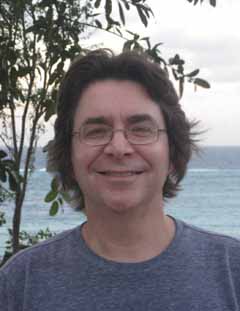 Ian Manners, University of Bristol, United Kingdom
Ian Manners, University of Bristol, United Kingdom
Ian received his Ph.D. from the University of Bristol, conducted postdoctoral work in Germany and then in the USA, and joined the University of Toronto, Canada as an Assistant Professor in 1990. He was made Full Professor in 1995 and a Canada Research Chair in 2001. In 2006 he returned to Bristol to take up a Chair in Inorganic, Macromolecular and Materials Chemistry and an EU Marie Curie Chair. His awards include a Sloan Fellowship (from the US), the Steacie Prize (from Canada), the RSC Award in Main Group Chemistry, the RSC Peter Day Award for Soft Matter Materials Chemistry, and a Humboldt Research Award from Germany. He is an elected member of both the Canadian and the British National Academies of Science. His work is documented in > 600 papers and 4 books and has been presented in ca. 500 invited lectures worldwide.
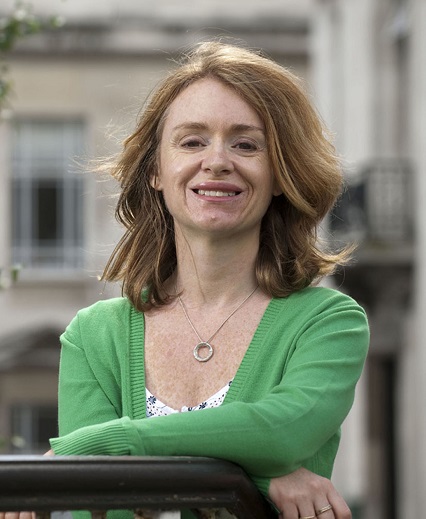 Fiona Meldrum, University of Leeds, United Kingdom
Fiona Meldrum, University of Leeds, United Kingdom
Fiona Meldrum holds a chair in Inorganic Chemistry at the University of Leeds, where her research centres on bio-inspired materials chemistry, and in particular on inorganic crystallisation. She obtained her PhD from the University of Bath in 1992, and following a postdoctoral position at the University of Syracuse, USA she held research fellowships at the MPI Polymerforschung, Mainz and the Australian National University in Canberra. She returned to the UK to take up a lectureship at Queen Mary, University of London in 1998 and in 2003, moved to the University of Bristol where she remained until she joined the University of Leeds in 2009. Fiona and her group are fascinated by crystallisation processes, and use a wide range of techniques including imaging-based methods, spectroscopy and microfluidics to better understand the mechanisms that govern crystal nucleation and growth from solution. They also have significant interests in controlling the structures and properties of crystals, and have taken inspiration from biomineralisation processes to develop new strategies for generating single crystals with complex morphologies and mechanical properties to rival those of their biogenic counterparts. Current interests include polymorph control and the use of physical environments – namely confinement and surface topography – to control crystallisation. Fiona has published lots of papers, has held an EPSRC Fellowship and was awarded a 2017 RSC Interdisciplinary Prize.
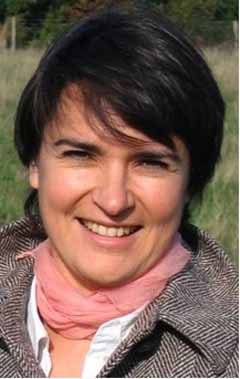 Caroline Mellot-Draznieks, College de France, France
Caroline Mellot-Draznieks, College de France, France
Caroline Mellot-Draznieks graduated at Ecole Normale Supérieure in Paris and obtained her PhD jointly at Université Pierre et Marie Curie and IFPEN in 1993. She spent two years in R&D at L’Air Liquide, then conducted postdoctoral work at University of California, Santa Barbara with Prof. A. K. Cheetham. She became a CNRS Researcher in 1998 at the Institut Lavoisier in Versailles and moved in 2007 to University College London as an EPSRC Research Fellow until 2012. She is now Research Director at the Laboratoire de Chimie des Processus Biologiques at the Collège de France. Her current research interests include the characterization and simulation of nanoporous materials, environmental issues involving gas separations, CO2 capture and photocatalysis. She is particularly interested in the computational design of functional materials and crystal structure prediction, using computational approaches ranging from first principles to classical methods and high performance computing.
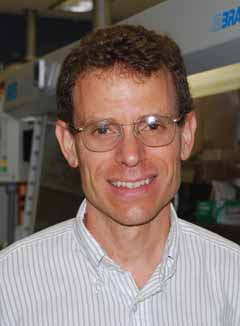 David Mitzi, Duke University, United States
David Mitzi, Duke University, United States
David Mitzi is currently the Simon Family Professor of Engineering at Duke University with appointments to the Department of Mechanical Engineering and Materials Science and the Department of Chemistry. He received his B.S. in Electrical Engineering and Engineering Physics from Princeton University in 1985 and his Ph.D. in Applied Physics from Stanford University in 1990. Prior to joining the faculty at Duke in 2014, Dr. Mitzi spent 23 years at IBM’s T.J. Watson Research Center, focusing on the search for and application of new electronic materials, including organic-inorganic hybrids and inorganic materials for photovoltaic, LED, transistor and memory applications. During his final five years at IBM, he served as manager for the Photovoltaic Science and Technology Department, where he initiated and managed a multi-company program to develop a solution-based approach to deposit thin-film chalcogenide-based absorber layers for high-efficiency solar cells. Dr. Mitzi holds a number of patents, and has authored or coauthored more than 200 papers and book chapters
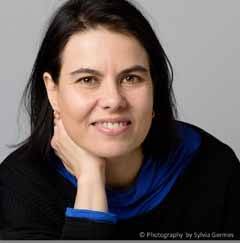 Beatriz Noheda , University of Groningen, Netherlands
Beatriz Noheda , University of Groningen, Netherlands
Beatriz Noheda received her PhD in Physics from the Autonomous University of Madrid (UAM) in 1996, working on ferroelectrics. During that time, she received a DAAD Fellowship to do work at the University of Saarlandes (Germany). Afterwards, she became visiting scientist at the Clarendon Laboratory in Oxford (UK) in the group of Prof. M. A. Glazer. During 1998-2002, she was Assistant Physicist at Brookhaven National Lab in New York and local contact at the powder diffraction beamline of the National Synchrotron Light Source (NSLS). In 2002 she moved back to Europe, to the Vrije Universiteit in Amsterdam, and in 2003, she was awarded a Rosalind Franklin Fellowship by the University of Groningen, where she became assistant professor. In 2008 she was promoted to associate professor and in 2014 to full professor. Noheda is a Fellow of the American Physical Society and has served as member of various committees and editorial boards. She is author of 100 publications, has given 3 plenary talks and receives more than 10 invitations per year to speak in international conferences. Noheda’s research focuses on the fundamental understanding of piezoelectricity, the synthesis of thin films of ferroelectric and multiferroic materials with atomic control (using pulsed laser deposition), the control of nano-domains that self-assemble by strain engineering, as well as the characterization of the distinct properties of domain walls
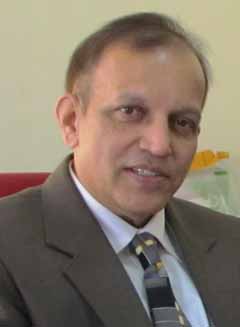 Satish Ogale, Indian Institue of Science Education & Research, Pune, India
Satish Ogale, Indian Institue of Science Education & Research, Pune, India
Dr. Satishchandra Ogale is currently working as Professor, Department of Physics and Centre for Energy Science at the Indian Institute of Science Education and Research (IISER) Pune. Over the past 35 years he has worked in several fields such as high temperature superconductors, CMR manganites, Diluted Magnetic Semiconductors, Spintronics etc. and more recently his research focus is on clean energy harvesting (DSSC and Perovskite Cells), storage (Batteries and Supercapacitors) and conservation (LEDs). He has over 430 research publications, several review articles and two edited books (Springer and Wiley) to his credit. He has presented several invited talks in International Conferences. He is on the Editorial Advisory Boards of RSC’s Energy and Environmental Science, Nature Scientific Reports and ACS Applied Materials and Interfaces. He spent about 10 years at the University of Maryland, College Park, as Visiting Professor and Senior Research Scientist, before returning to India in 2006 and joining National Chemical Laboratory. Prior to that he was Professor of Physics and also Chair, Department of Physics at Pune University. He has won several national awards for his research and is an elected fellow of the Indian Academy of Science
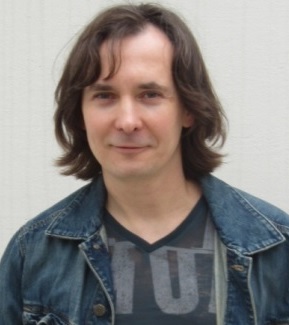 Dmitri Perepichka, McGill University, Canada
Dmitri Perepichka, McGill University, Canada
Dmitrii Perepichka was born in Donetsk, Ukraine. He received PhD in chemistry in 1999 from the Institute of National Academy of Science of Ukraine, which was followed by post-doctoral training at Durham University with Martin Bryce and at UCLA with Fred Wudl. After his first independent appointment at INRS-Energy, Materials and Telecommunications in Varennes, Canada (2003), he moved to McGill University in 2005, where he was tenured in 2010 and promoted to Full Professor in 2014.
The research of his group combines a variety of topics in advanced materials and nanoscience, with a focus on synthesis of novel organic electronic materials, their applications in molecular and thin film devices, and an overarching goal of discovering novel electronic properties. This work has been published in >100 research papers and received CSC Award for Excellence in Materials Chemistry, Fulbright Research Chair award, DuPont Young Professor Award, among other distinctions.
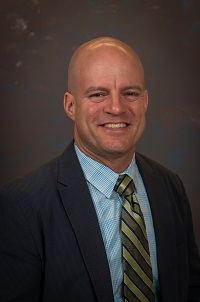 Darrin Pochan, University of Delaware, United States
Darrin Pochan, University of Delaware, United States
Darrin Pochan is currently professor and chair of the Materials Science and Engineering Department as well as a member of the Delaware Biotechnology Institute at the University of Delaware. Since joining the MSE department in 1999 after a Ph.D. in Polymer Science and Engineering at the University of Massachusetts-Amherst and a National Research Council Post-doctoral fellowship at the National Institute of Standards and Technology in Gaithersburg, MD he has developed a research program around the construction of new materials and nanostructures via molecular self-assembly mechanisms, biomaterials, and materials for nanotechnology and energy applications through organic/inorganic hybrids. Honors for Darrin include an NSF Career Award, the DuPont Young Faculty Award, the Dillon medal from the American Physical Society, Fellow of the American Physical Society, Fellow of the Royal Society of Chemistry and Fellow of the Polymer Materials Science and Engineering Division of the American Chemical Society. Currently, Darrin also serves as Editor in Chief of Soft Matter, the interdisciplinary journal from the Royal Society of Chemistry in the United Kingdom.
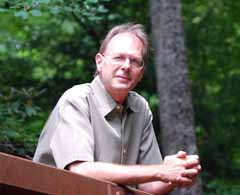 John Reynolds, Georgia Institute of Technology, United States
John Reynolds, Georgia Institute of Technology, United States
Dr. John R. Reynolds is a Professor of Chemistry and Biochemistry, and Materials Science and Engineering at the Georgia Institute of Technology with expertise in polymer chemistry. He serves as a member of the Center for Organic Photonics and Electronics (COPE) and Director of the Georgia Tech Polymer Network (GTPN). His research interests have involved electrically conducting and electroactive conjugated polymers for over 35 years with work focused to the development of new polymers by manipulating their fundamental organic structure in order to control their optoelectronic and redox properties. His group has been heavily involved in developing new polyheterocycles for visible and infrared light electrochromism, along with light emission from polymer and composite LEDs (both visible and near-infrared) and light emitting electrochemical cells (LECs). Further work is directed to using organic polymers and oligomers in charge storing supercapacitors and photovoltaic cells. Reynolds obtained his M.S. (1982) and Ph.D. (1984) degrees from the University of Massachusetts in Polymer Science and Engineering, he has published over 350 peer-reviewed scientific papers, has 35 patents issued and ~10 patents pending, and served as co-editor of the “Handbook of Conducting Polymers” which was published in 2007. He serves on the editorial board for the journals ACS Applied Materials and Interfaces, ACS Central Science, Macromolecular Rapid Communications, Polymers for Advanced Technologies, and the Journal of Macromolecular Science, Chemistry. John has been married since October of 1986, has three children, and he and his wife make their home in Dunwoody GA.
Mary Ryan, Imperial College London, United Kingdom
Mary Ryan is Professor of Materials Science and Nanotechnology in the Materials Department at Imperial College London. She currently holds an RAEng/Shell Research Chair for Interfacial Science and leads the Imperial-Shell Centre for Advanced Interfacial Materials Science. Her research spans several application areas around the central theme of nanomaterials-environment interfaces: the growth and stability of nanoscale systems, nanomaterials for energy and nanotoxicity. She is a Fellow of the Royal Academy of Engineering, Fellow of the Institute of Materials and a Member of the International Society of Electrochemistry. She is a Trustee of the National Heritage Science Forum and Member of the Research Advisory Board of the Royal Air Force Museum.
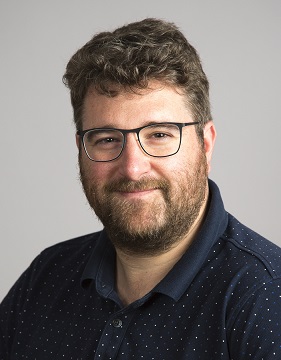 Oren Scherman, University of Cambridge, United Kingdom
Oren Scherman, University of Cambridge, United Kingdom
Oren Scherman graduated from Cornell University in Ithaca, New York, with a BA in Chemistry in 1999. He then moved to Pasadena, California, where he completed a PhD in 2004 in the area of olefin metathesis and controlled polymerisation, under the supervision of Professor Robert H. Grubbs at the California Institute of Technology (Caltech). After finishing his PhD, Oren moved to the Netherlands to work on supramolecular polymers with Professors E.W. Meijer and Rint P. Sijbesma at the Eindhoven University of Technology. In 2006, he moved to the University of Cambridge to take up an academic appointment as a University Lecturer and Next Generation Fellow in the Melville Laboratory for Polymer Synthesis in the Department of Chemistry. In 2012, he was promoted to Reader in Supramolecular and Polymer Chemistry and in March 2013, he was appointed as the Director of the Melville Laboratory; Oren was promoted to Professor in 2015. During the 2013-2014 academic year, Oren was on sabbatical at Tsinghua University as the Xuetang Visiting Professor in Chemistry. His research group is interested in dynamic supramolecular self-assembly at interfaces. Oren’s current research projects include the application of macrocyclic host-guest chemistry using cucurbit[n]urils in the development of novel supramolecular hydrogels and microcapsules, drug-delivery systems based on dynamic hydrogels, the conservation and restoration of important historical artefacts through the exploitation of supramolecular polymer chemistry and sensing and catalysis using self-assembled nanophotonic systems.
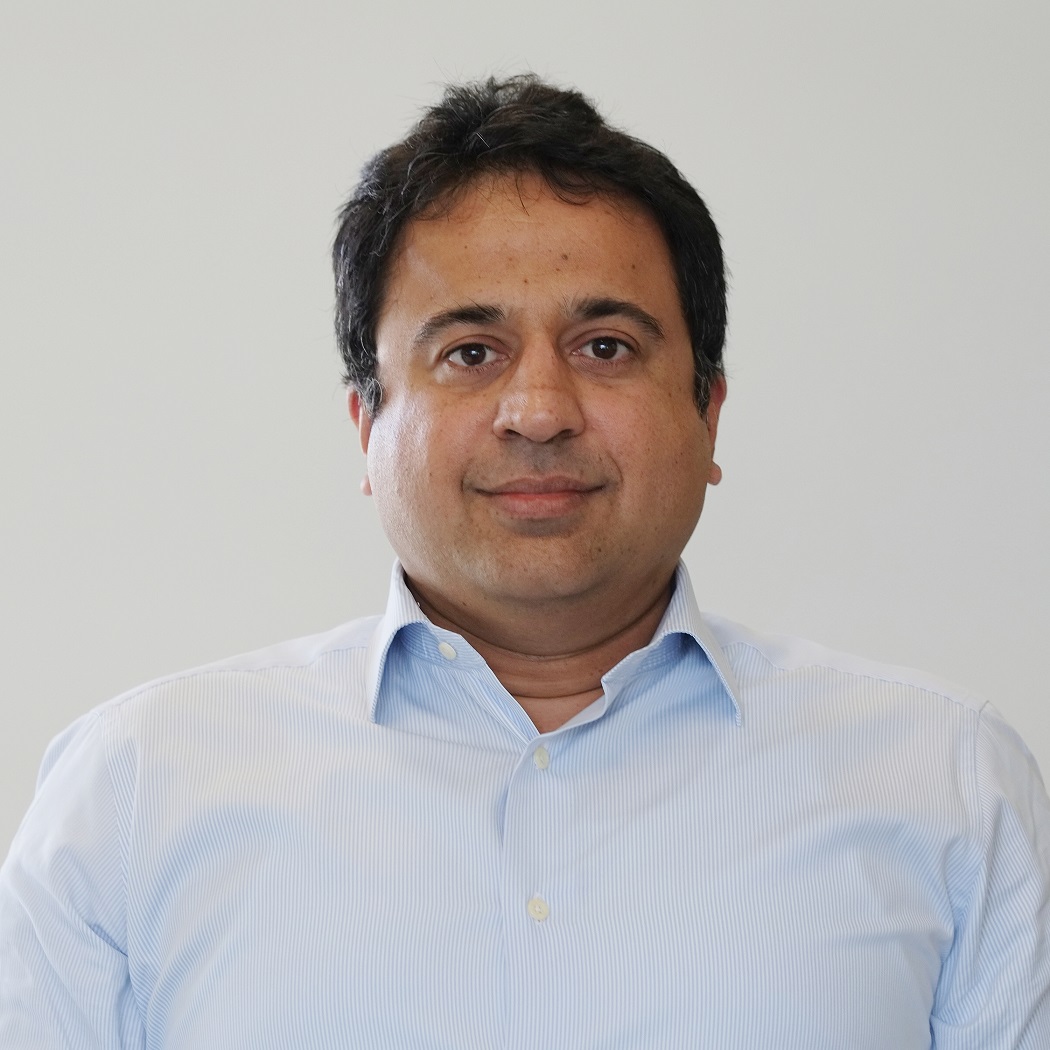 Ram Seshadri, University of California, Santa Barbara, United States
Ram Seshadri, University of California, Santa Barbara, United States
Ram Seshadri has been on the faculty of the University of California, Santa Barbara since 2002, where he is currently Professor of Materials and Professor in the Department of Chemistry and Biochemistry, in addition to Directing the NSF Materials Research Science and Engineering Center (MRSEC) at UCSB: The Materials Research Laboratory). Seshadri has a BSc. (Hons.) in Chemistry from St. Stephens College (Delhi University) and a PhD in Solid State Chemistry from the Indian Institute of Science, Bangalore, where he carried out research under the supervision of Professor C. N. R. Rao FRS. Following postdoctoral stays at the CRISMAT lab in Caen, France, and the University of Mainz in Germany, he spent three years in the Indian Institute of Science, Bangalore as a faculty member before moving to Santa Barbara.
The research carried out in his group combines aspects of physics, chemistry, and materials science, within the broad theme of crystal chemistry, and crystal-structure–property relations in functional inorganic materials. The functions of interest include electrical, magnetic, thermal, optical, and redox properties, and combinations therein. He is also deeply interested in the development of advanced tools for the structural characterization of materials, and in the use of first-principles electronic structure calculations for understanding and prediction of materials function. Seshadri has nearly 300 publications associated with these topics.
Seshadri’s research contributions have been recognized through an NSF Career Award and the ACS ExxonMobil Solid State Chemistry Faculty Fellowship in 2005. He was elected to the Fellowship of the Royal Society of Chemistry in 2010, and the American Chemical Society in 2015. He currently as Associate Editor of the ACS journal Chemistry of Materials, and on the Editorial Committee of Annual Reviews of Materials Research. He previously served as one of two US Associate Editors for the RSC Journal of Materials Chemistry.
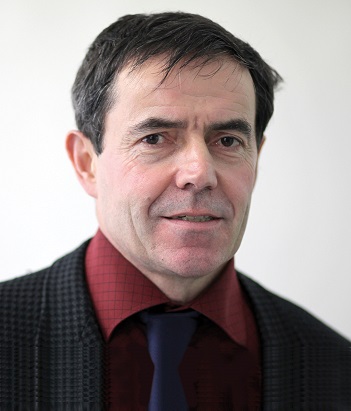 Jean-Marie Tarascon, College de France, France
Jean-Marie Tarascon, College de France, France
Jean-Marie Tarascon (1953) is Professor at the College de France holding the chair “Chemistry of solids – Energy). But much of his early career was spent in the United States where he developed (1994) the plastic Li-ion technology. Back to France in 1995, he created the European network of excellence ALISTORE-ERI of which he was head until 2010 when he took over the direction of the new LABEX “STORE-EX” . In 2011 he became in charge of the recently created French network on electrochemical energy storage (RS2E). The general scheme of his research focuses on the synthesis, characterization, and determination of structure/property relationships of electronic, superconductor and rechargeable battery materials for solid state electronic devices. Presently his activities are more devoted to Li-ion, Na-ion batteries and other chemistries with emphasis on developing novel reactivity concepts.. He is the author of more than 650 scientific papers, and detains about 85 patents . He received many honours, with the latest being the the 2015 Centenary price Centenary Prize of the Royal Society of Chemistry’s, the 2016 Catalan-Sabatier prize of the Spanish Royal society, the 2017 Galvani medal and the 2017’s CNRS innovation medal.
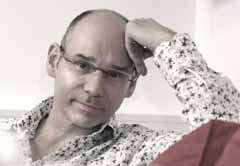 Dek Woolfson, University of Bristol, United Kingdom
Dek Woolfson, University of Bristol, United Kingdom
Prof Dek Woolfson took his first degree in Chemistry at the University of Oxford, UK. He then gained a PhD in Chemistry and Biochemistry at the University of Cambridge. He then did post-doctoral research at University College London and the University of California, Berkeley. After 10 years as Lecturer through to Professor of Biochemistry at the University of Sussex, he moved to the University of Bristol in 2005 to take up a joint chair in Chemistry and Biochemistry.
Dek’s research has always been at the interface between chemistry and biology, applying chemical methods and principles to understand biological phenomena. Specifically, his group is interested in the challenge of rational protein design, and how this can be applied in synthetic biology and biotechnology. His particular emphasis is on making completely new protein structures and biomaterials for applications in cell biology and medicine.
In 2011, Dek became the first recipient of the Medimmune Protein and Peptide Science Award of the Royal Society of Chemistry; in 2014 he received a Royal Society Wolfson Research Merit Award; and in 2016 he won the Interdisciplinary Prize of the Royal Society of Chemistry. Dek is Director of BrisSynBio, a BBSRC/EPSRC-funded Synthetic Biology Research Centre
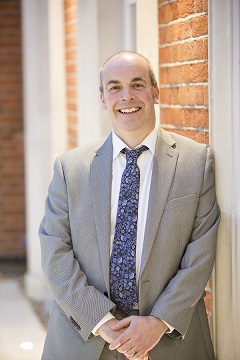 Dave Worsley, Swansea University, United Kingdom
Dave Worsley, Swansea University, United Kingdom
Professor Worsley is author and co-author of 124 refereed scientific publications on coated product development. He has worked closely with the coatings industry since being appointed to the Materials Research Centre in the mid 1990’s, following an industry sponsored PhD (Johnson Matthey), an Industrial Fellowship (Astra Zeneca) and a British Steel Fellowship.
He is the current Deputy Head, College of Engineering, Swansea University as well as being the College’s Director of Research overseeing the REF 2021 submission.
Professor Worsley is also Research Director of SPECIFIC IKC (Sustainable Product Engineering Centre for Innovative Functional Industrial Coatings) which now encompasses in excess of £50m research and delivery portfolio for transforming ‘buildings into powerstations’ by harnessing the power of solar energy. Primarily funded by ERDF, EPSRC and Innovate UK, this collaboration is supported by 32 companies with international presence but a footprint in UK including Tata Steel, NSG Pilkington, Akzo Nobel and Vale INCO. A major focus is in the application of building integrated photovoltaics (BIPV) to provide an aesthetically pleasing and low cost solution to integrating renewable energy into the building fabric. This work is supported by strategic collaborations with Imperial College London (Sêr Cymru Sêr Solar), Oxford and Cambridge universities plus numerous partner projects with a further 12 UK and international universities. Professor Worsley has been instrumental in enabling the spin out from Swansea University of a company, BIPV Co to enable commercialisation of building integrated PV products.
Research interests span coatings used for corrosion protection to renewable energy generation.
Areas of Expertise:
solution processed perovskite solar cells
building integrated photovoltaics
coating applications and development
corrosion science and engineering
construction steel
In 2015, Professor Dave Worsley was awarded the prestigious Hadfield Medal and Prize by the Institute of Materials, Minerals and Mining (IOM3), in recognition of his distinguished work in the field of materials science and engineering; in particular, his achievements connected with the iron and steel industries.
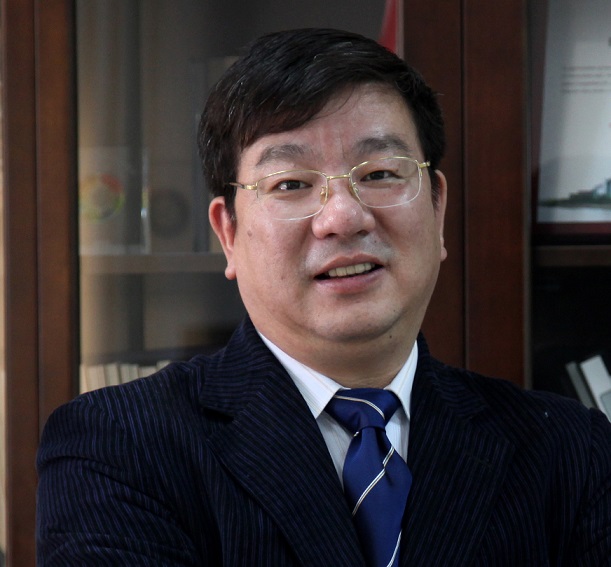 Dongyuan Zhao, Fudan University, China
Dongyuan Zhao, Fudan University, China
Dongyuan Zhao was born in Northeastern of China, he received B.S. (1984), M.S. (1987) and PhD (1990) from Jilin University. He was a post-doctoral fellow in the Weizmann Institute of Science (1993–94), University of Houston (1995–96), University of California at Santa Barbara (1996–98). Now he is a Professor (Cheung Kong and HaoQing Professorship) in the Department of Chemistry at Fudan University. He was a member of Chinese Academy of Sciences and The Third World Academy of Science (TWAS), Council Member of IZA, President of International Mesostructured Materials Association (IMMA). He has received many awards such as TWAS Lenovo Science Prize (2016); CRN Rao Award from India Chemical Research Society (2013); Muetterties Memory Award (2012); The Ho Leung Ho Lee Award (2009), TWAS Prize (2008); IMMS Award (2008); DuPond Award (2005). He is now appointed as He is now appointed as senior Editor of ACS Central Science; he serviced as Editor-in-Chief of Journal of Materials Chemistry, and co-editor of Journal of Colloid and Interface Science. He published more than 600 peer-review papers, 39 patents and is listed as one of highly cited researchers ISI in both Chemistry and Materials Science fields (Total citation ~ 76,000, h index 130). His research interests mainly include designed synthesis, assembly, structure and application of ordered mesoporous materials.
-
Ferdi Schüth
Max-Planck institute für Kohlenforschung, Germany







































